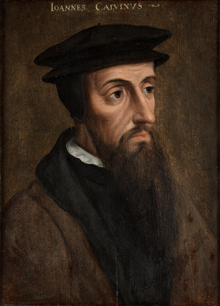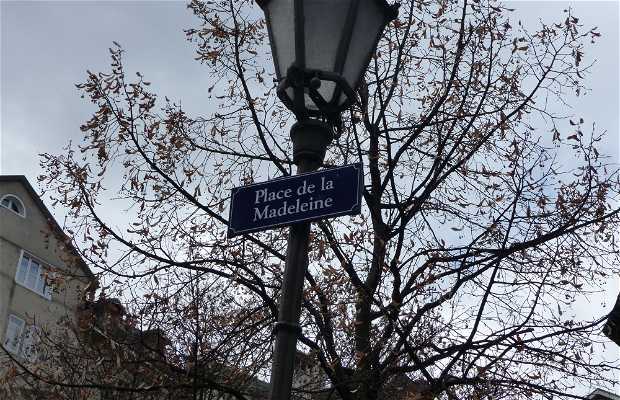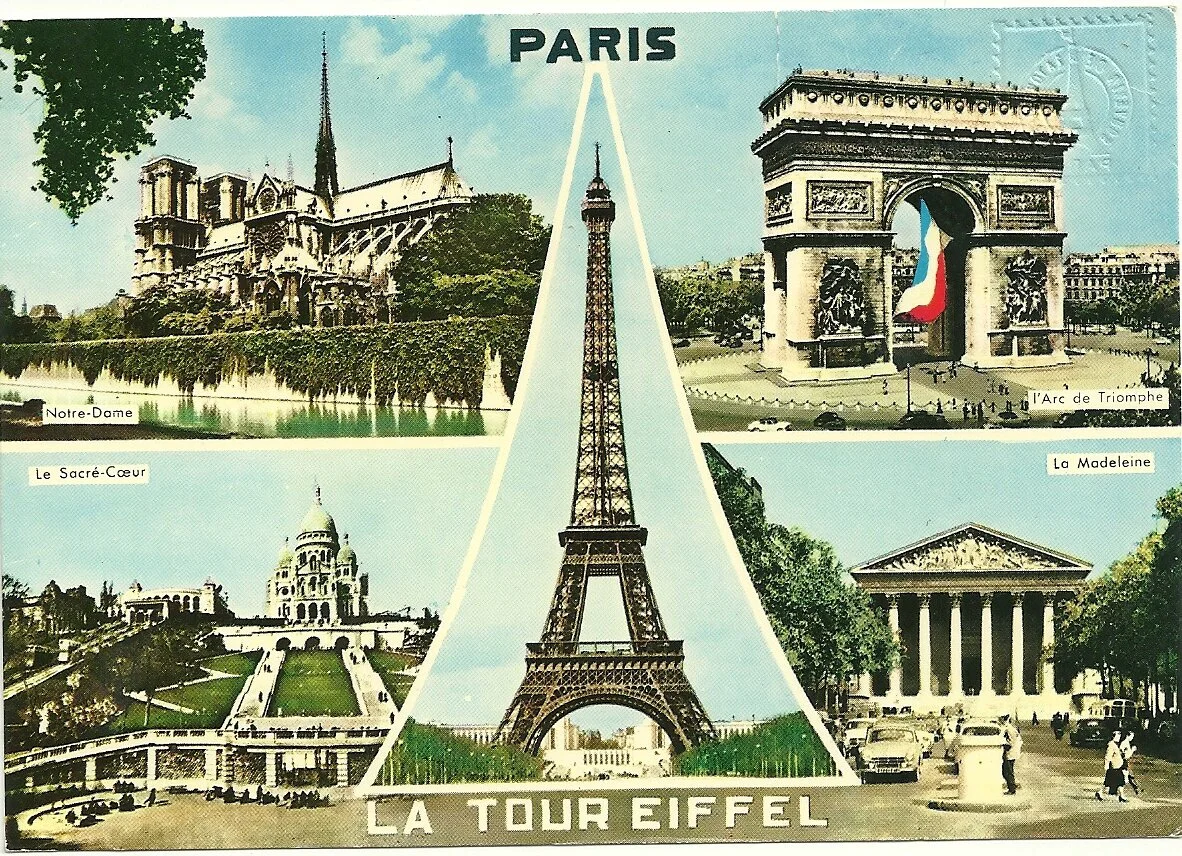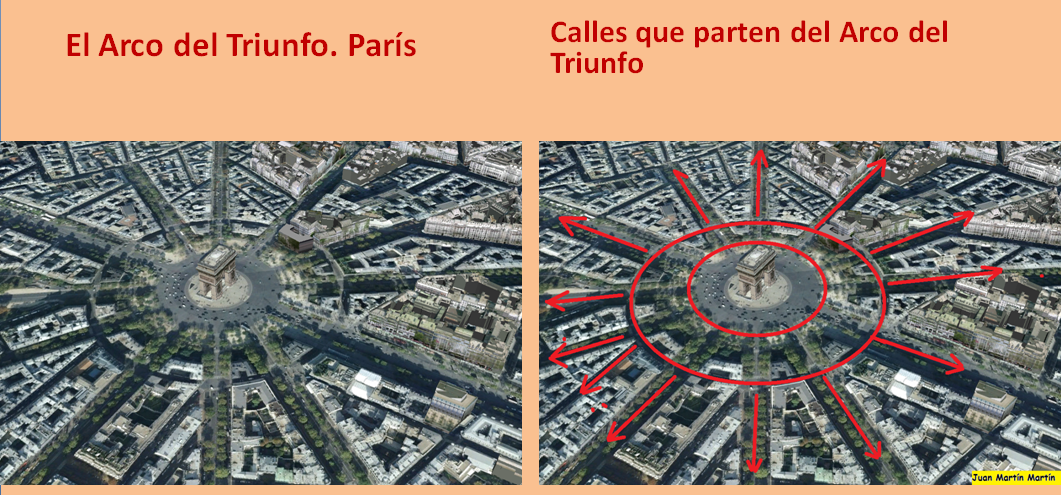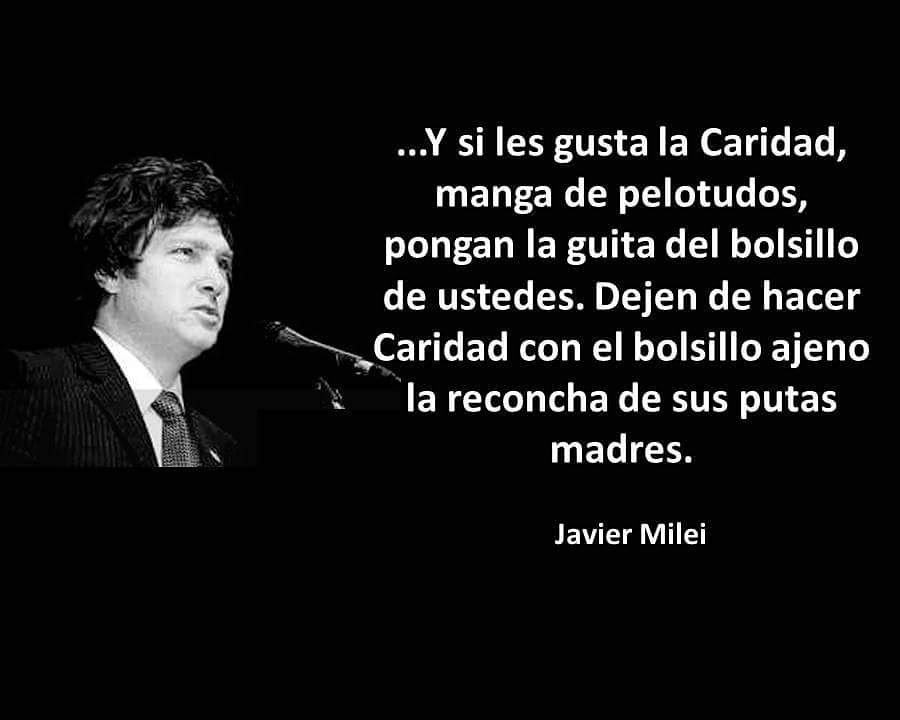John Calvin (;[1] Middle French: Jehan Cauvin; French: Jean Calvin [ʒɑ̃ kalvɛ̃]; 10 July 1509 – 27 May 1564) was a French theologian, pastor and reformer in Geneva during the Protestant Reformation. He was a principal figure in the development of the system of Christian theology later called Calvinism, including its doctrines of predestination and of God's absolute sovereignty in the salvation of the human soul from death and eternal damnation. Calvinist doctrines were influenced by and elaborated upon the Augustinian and other Christian traditions. Various Congregational, Reformed and Presbyterian churches, which look to Calvin as the chief expositor of their beliefs, have spread throughout the world.
Calvin was a tireless polemicist and apologetic writer who generated much controversy. He also exchanged cordial and supportive letters with many reformers, including Philipp Melanchthon and Heinrich Bullinger. In addition to his seminal Institutes of the Christian Religion, Calvin wrote commentaries on most books of the Bible, confessional documents, and various other theological treatises.
Calvin was originally trained as a humanist lawyer. He broke from the Roman Catholic Church around 1530. After religious tensions erupted in widespread deadly violence against Protestant Christians in France, Calvin fled to Basel, Switzerland, where in 1536 he published the first edition of the Institutes. In that same year, Calvin was recruited by Frenchman William Farel to join the Reformation in Geneva, where he regularly preached sermons throughout the week. However, the governing council of the city resisted the implementation of their ideas, and both men were expelled. At the invitation of Martin Bucer, Calvin proceeded to Strasbourg, where he became the minister of a church of French refugees. He continued to support the reform movement in Geneva, and in 1541 he was invited back to lead the church of the city.
Following his return, Calvin introduced new forms of church government and liturgy, despite opposition from several powerful families in the city who tried to curb his authority. During this period, Michael Servetus, a Spaniard regarded by both Roman Catholics and Protestants as having a heretical view of the Trinity, arrived in Geneva. He was denounced by Calvin and burned at the stake for heresy by the city council. Following an influx of supportive refugees and new elections to the city council, Calvin's opponents were forced out. Calvin spent his final years promoting the Reformation both in Geneva and throughout Europe.
Life
Early life (1509–1535)

Calvin was originally interested in the priesthood, but he changed course to study law in
Orléans and
Bourges. Painting titled
Portrait of Young John Calvin from the collection of the Library of Geneva.
John Calvin was born as Jehan Cauvin on 10 July 1509, at Noyon, a town in Picardy, a province of the Kingdom of France.[2] He was the second of three sons who survived infancy. His mother, Jeanne le Franc, was the daughter of an innkeeper from Cambrai. She died of an unknown cause in Calvin's childhood, after having borne four more children. Calvin's father, Gérard Cauvin, had a prosperous career as the cathedral notary and registrar to the ecclesiastical court. Gérard intended his three sons—Charles, Jean, and Antoine—for the priesthood.
 William Farel
William Farel was the reformer who persuaded Calvin to stay in Geneva. 16th-century painting. In the
Bibliothèque Publique et Universitaire, Geneva.
In March 1536, Calvin published the first edition of his Institutio Christianae Religionis or Institutes of the Christian Religion.[15] The work was an apologia or defense of his faith and a statement of the doctrinal position of the reformers. He also intended it to serve as an elementary instruction book for anyone interested in the Christian faith. The book was the first expression of his theology. Calvin updated the work and published new editions throughout his life.[16] Shortly after its publication, he left Basel for Ferrara, Italy, where he briefly served as secretary to Princess Renée of France. By June he was back in Paris with his brother Antoine, who was resolving their father's affairs. Following the Edict of Coucy, which gave a limited six-month period for heretics to reconcile with the Catholic faith, Calvin decided that there was no future for him in France. In August he set off for Strasbourg, a free imperial city of the Holy Roman Empire and a refuge for reformers. Due to military maneuvers of imperial and French forces, he was forced to make a detour to the south, bringing him to Geneva. Calvin had intended to stay only a single night, but William Farel, a fellow French reformer residing in the city, implored him to stay and assist him in his work of reforming the church there. Calvin accepted his new role without any preconditions on his tasks or duties.[17] The office to which he was initially assigned is unknown. He was eventually given the title of "reader", which most likely meant that he could give expository lectures on the Bible. Sometime in 1537 he was selected to be a "pastor" although he never received any pastoral consecration.[18] For the first time, the lawyer-theologian took up pastoral duties such as baptisms, weddings, and church services.[19]
During late 1536, Farel drafted a confession of faith, and Calvin wrote separate articles on reorganizing the church in Geneva. On 16 January 1537, Farel and Calvin presented their Articles concernant l'organisation de l'église et du culte à Genève (Articles on the Organization of the Church and its Worship at Geneva) to the city council.[20] The document described the manner and frequency of their celebrations of the Eucharist, the reason for, and the method of, excommunication, the requirement to subscribe to the confession of faith, the use of congregational singing in the liturgy, and the revision of marriage laws. The council accepted the document on the same day.[21]
As the year progressed, Calvin and Farel's reputation with the council began to suffer. The council was reluctant to enforce the subscription requirement, as only a few citizens had subscribed to their confession of faith. On 26 November, the two ministers hotly debated the council over the issue. Furthermore, France was taking an interest in forming an alliance with Geneva and as the two ministers were Frenchmen, councilors had begun to question their loyalty. Finally, a major ecclesiastical-political quarrel developed when the city of Bern, Geneva's ally in the reformation of the Swiss churches, proposed to introduce uniformity in the church ceremonies. One proposal required the use of unleavened bread for the Eucharist. The two ministers were unwilling to follow Bern's lead and delayed the use of such bread until a synod in Zurich could be convened to make the final decision. The council ordered Calvin and Farel to use unleavened bread for the Easter Eucharist. In protest, they refused to administer communion during the Easter service. This caused a riot during the service. The next day, the council told Farel and Calvin to leave Geneva.[22]
Farel and Calvin then went to Bern and Zurich to plead their case. The resulting synod in Zurich placed most of the blame on Calvin for not being sympathetic enough toward the people of Geneva. It asked Bern to mediate with the aim of restoring the two ministers. The Geneva council refused to readmit the two men, who then took refuge in Basel. Subsequently, Farel received an invitation to lead the church in Neuchtel. Calvin was invited to lead a church of French refugees in Strasbourg by that city's leading reformers, Martin Bucer and Wolfgang Capito. Initially, Calvin refused because Farel was not included in the invitation, but relented when Bucer appealed to him. By September 1538 Calvin had taken up his new position in Strasbourg, fully expecting that this time it would be permanent; a few months later, he applied for and was granted citizenship of the city.[23]
Minister in Strasbourg (1538–1541)
Saint-Nicolas Church, Strasbourg, where Calvin preached in 1538. The building was architecturally modified in the 19th century.
Martin Bucer invited Calvin to Strasbourg after he was expelled from Geneva. Illustration by
Jean-Jacques Boissard.
During his time in Strasbourg, Calvin was not attached to one particular church, but held his office successively in the Saint-Nicolas Church, the Sainte-Madeleine Church and the former Dominican Church, renamed the Temple Neuf.[24] (All of these churches still exist, but none are in the architectural state of Calvin's days.) Calvin ministered to 400–500 members in his church. He preached or lectured every day, with two sermons on Sunday. Communion was celebrated monthly and congregational singing of the psalms was encouraged.[25] He also worked on the second edition of the Institutes. Calvin was dissatisfied with its original structure as a catechism, a primer for young Christians.[26]
For the second edition, published in 1539, Calvin changed its format in favor of systematically presenting the main doctrines from the Bible. In the process, the book was enlarged from six chapters to seventeen.[26] He concurrently worked on another book, the Commentary on Romans, which was published in March 1540. The book was a model for his later commentaries: it included his own Latin translation from the Greek rather than the Latin Vulgate, an exegesis, and an exposition.[27] In the dedicatory letter, Calvin praised the work of his predecessors Philipp Melanchthon, Heinrich Bullinger, and Martin Bucer, but he also took care to distinguish his own work from theirs and to criticize some of their shortcomings.[28]
Calvin's friends urged him to marry. Calvin took a prosaic view, writing to one correspondent:
I, who have the air of being so hostile to celibacy, I am still not married and do not know whether I will ever be. If I take a wife it will be because, being better freed from numerous worries, I can devote myself to the Lord.[29]
Several candidates were presented to him including one young woman from a noble family. Reluctantly, Calvin agreed to the marriage, on the condition that she would learn French. Although a wedding date was planned for March 1540, he remained reluctant and the wedding never took place. He later wrote that he would never think of marrying her, "unless the Lord had entirely bereft me of my wits".[30] Instead, in August of that year, he married Idelette de Bure, a widow who had two children from her first marriage.[31]

